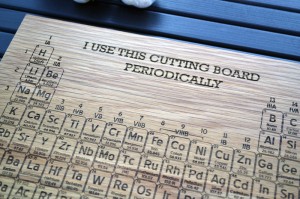 If you don’t listen to episode 291 of The Reality Check you’ll probably regret it for the rest of your life. Pat leads off the show with a skeptical look at the product Mozi-Q which is a pill that claims to be a mosquito repellent. Next, Adam answers a listener question about whether or not rain melts snow. Darren closes out the show with an examination of what’s better between wood and plastic cutting boards.
If you don’t listen to episode 291 of The Reality Check you’ll probably regret it for the rest of your life. Pat leads off the show with a skeptical look at the product Mozi-Q which is a pill that claims to be a mosquito repellent. Next, Adam answers a listener question about whether or not rain melts snow. Darren closes out the show with an examination of what’s better between wood and plastic cutting boards.
Download direct: mp3 file
If you like the show, please leave us a review on itunes.
SHOW NOTES
Mozi-Q
Health Canada Natural Product License 80031902
Dr. Joe Schwartz: Homeopathy Bugs Me
Science Based Medicine – Sugar Pills Won’t Repel Insects
Health Canada – Natural Health Product Regulation
National Post – Doctors Criticism of Health Canada Regulation
Science Based Pharmacy – Regulation Problem
Science Based Pharmacy – Mozi-Q Fools The Dragons
Science Based Pharmacy – Does Mozi-Q Work?
Does Rain Melt Snow
Rapidly Melting Snow – From the Lee Side
Rain, Snow and Spring Runoff Revisited
Cutting Boards








I study soil hydrology, and that often involves analyzing infiltration behavior when it rains on snow. The rainwater almost always gets into the deeper unfrozen soil through particular channels that form in the ice/snow/frozen soil underneath. Having never crunched the numbers, I had always assumed that it was the rain itself that melts its way through the snowpack. This suggests other culprits – dark leaves or stems absorbing sunlight and melting a channel over the course of days, perhaps? I am duly reminded of the perils of even the simplest assumptions! Thank you for doing this math- and science-heavy segment, and not flinching away from the actual numbers and mechanisms! Nicely done, Adam.
I’m not totally convinced about rain not melting snow.
How much heat gets put into snow just from the rain’s kinetic energy? Could that add anything to the melting rate?
Also, dry snow has lots of trapped air inside it, which makes it a pretty good thermal insulator. Surely if rain hits snow, it’ll displace the air, and make the snow much more thermally conductive? Couldn’t that mean rain helps snow melt?
And to me, wet snow looks darker than dry snow, so couldn’t being wet help snow absorb the sun’s heat?
Again, on the question of rain on snow …
I have a PhD in engineering hydrology, specializing in modelling the potential impacts of climate change on rivers flows. Because snow plays a key role in the hydrology of Canada, I cannot overstate how much time I have spent thinking about everything that happens to snow before and after it melts.
I have to take issue with how many times someone said on the show that “rain doesn’t melt snow” even though you clearly demonstrated that it does, just not as much as you thought.
Also, your example of 2 deg C rain is misleading. Rain on snow can have any temperature from 0 to close to 20 degrees. You cannot assume that just because it’s warm the snow would melt anyway. This may be true if you amuse want your lawn or sidewalk to be clear, but it matters a lot if we are talking about flooding potential. For starters, rain can fall directly on shaded areas and slopes where snow can persist for months after open areas are clear. Also keep in mind that warm air can hold much more water vapour than cold air so you can get much higher rainfall rates at higher temperatures than at lower ones.
Consider what happens if you have 100 mm of rain at 15 deg C, which is a perfectly normal spring temperature when there still a lot of snow. That’s 1500 mm degrees of melt potential, enough to melt about 20 mm of “snow water equivalent” since it takes about 80 degree mm of rain to melt 1 mm of snow. That’s an extra 20% of water available for runoff.
You need to further consider that every additional mm of rain/melt becomes more and more likely to find its way to river systems because soils get saturated, depressions get filled, etc. So 20% more rain/melt can easily translate to 50%+ more river flow under a flood.
Also, the difference between a 50, 100, and 200 year events are not nearly as much as most people think. It’s perfectly normal for a 200 year river flood event to be about 50% more flow than a 50 year event. This means that heavy rain on a moderate snow pack has the theoretical potential to turn a 1 in 50 year event into a 200 year event. This is more than enough to turn a manageable flow to one that overwhelms water infrastructure and causes major damage.
While you are correct that each mm of condensation can melt far more snow than a mm of 2, or even 20, degree rain, you are never going to see a 100+mm condensation event. So the humidity effect might be more of a factor for melting the snow in a lawn in suburban Ottawa, it is never going to cause a flood.
I also agree with what Pearson says about the changes in snow properties that rain can produce. Snow and ice have extremely complex crystal behaviour than can fundamentally alter a number of properties, including its thermal conductivity and albedo (how dark the snow is) that in turn can change how quickly the snow melts. Unfortunately, it’s so complex that it defies any attempt to make simple quantitative estimates.
Sorry about all the details and length, but as a professional I am bound to cover all the bases.
Another factor to consider is the rain melting snow can happen fast (as fast as it rains) while condensation is a necessarily slow process.
Finally, the example I gave above is high end scenario, although still perfectly realistic. So 20% extra rain/melt is about as much as you can realistically expect in most settings, primarily because eventually you run out of snow to melt and there’s a limit to how warm you can expect the rain to be.
In your defence though, you are correct that no matter what the conditions are, most of the runoff will be from the rain itself.
It seems to me that the core issue here is the speed at which these heat exchanges take place, as ErnstK mentioned. Condensation is much more energetic and it can occur in the sun or the shade, but it takes time. Does anyone know of a good estimate for realistic rates of condensation on a warm, humid day?
ErnstK, your jump from a 20% increase in water to a 50% increase in stream flow seems dubious to me. Unless it’s capped by a layer of ice, water infiltrates easily into snow, and snow’s storage capacity is high. That increase is predicated on an additional 20% causing the event to overwhelm the storage capacity of snow and soil, all during unusually warm conditions. It’s just as likely to occur before that, or not at all. In other words, you’re talking about a perfect storm – certainly possible, but very unlikely (for example, if you had 100 mm of rain in just a day or two, you would probably have already overwhelmed the system). In order to be thorough, we would need to see how much melting would occur during that same event due to condensation; otherwise, we can’t say whether or not the rain itself is as significant. Other than that, thank you for an interesting rebuttal.
Person also makes some good points. I just did a back-of-the-envelope calculation on the KE of rain. For big, fast drops (~5 mm diameter), terminal velocity is about 9 m/s. For 1 kg of these drops, the KE would therefore be 0.5 * 1 kg * 81 (m/s)^2 = 40.5 J. That’s two orders of magnitude smaller than the 4180 J/kg to cool that kg of rain 1 deg C, so it’s a very small factor.
Thermal conductivity and albedo could definitely be big players, but that’s really not the rain causing the melting. The energy is still coming from radiation or convection/condensation from the air, and this could happen just as easily on a clear, hot day as meltwater fills pores.
Side note: could boosting thermal conductivity actually slow down melting by distributing heat faster and deeper, making it less likely to reach the latent energy needed to melt the ice in any given spot?
Sorry, I mistyped. In second paragraph, should have said “It’s just as likely to occur *after* that”
Isaac,
About the 20% to 50% thing. At an ultimate minimum, a 20% increase in the rain/melt rate will cause a 20% increase in the runoff rate. However, this can only happen in lab or ideal urban settings: nearly impermeable and perfectly smooth surface materials (like a carefully graded parking lot). In natural environments, with vegetation, variable soils, surface depressions, etc, a 20% increase in the rate will always increase runoff by more than 20%.
How much more than 20% depends on the conditions, and I admit that a 50% increase is somewhat on the high end (although nowhere near “perfect storm” high end). Do not underestimate the capacity of soils, vegetation, and land depressions to store large fractions of the first 100 mm of a rainfall event, especially in wooded environments. And even in urban environments a 20% increase in rain/melt will usually produce ~30% increase in runoff, which is still more than enough to turn a manageable event into a damaging event. Strictly speaking, so is a flat 20%.
Oh, and I would not say that 15 deg C rain on snow is unusual. I’m not sure where you are from, but its common enough out here in western Canada where it can be cold for months and spring can come with a bang, or in the mountains where snow can stay until late June over large areas (most notably, on north facing slopes). Also, because I’m talking about flood producing events, there will usually be some aspect of unlikelihood to the conditions I’m describing.
The key point is the end is that rain on snow effects are important for flood scale events, and not for run of the mill normal rainfall events. Most of the time, the vast majority in fact, snow melt is primarily controlled by air temperature and solar radiation.
I’m happy to see there’s no debate on Mozi-Q, interesting to hear Michael Kruse from Bad Science Watch on The Skeptic Zone talking about Health Canada and Homeopathy. A double win for Canadian skeptics!
Pat, thanks, you nailed it. Now, let’s see what we can do to stop these dangerous products from getting out. The most chilling part of the Mozi-Q presentation on The Dragons’ Den was where she stated her claim was to bring out a whole line of products for children.
That’s terrifying on it’s own, the fact that Health Canada doesn’t think it’s a problem makes it just ludicrous.
It was an interesting and important topic to cover. Thanks for the suggestion, Alex. Certainly this is the type of thing that our friends over at Bad Science Watch (Michael is the chair) are always working on. If you want to get involved, I think they are often looking for volunteers.
I also saw you mentioning on facebook that there isn’t much of a community where you live. Have you checked into the Fredericton Freethinkers?
Thank you for discussing Mozi-Q! I found your podcast as a result of a google search, trying to see what else has been posted about it (I wrote one of the posts about it last year on Scott’s SBP that you’ve linked to above.) Like Alex and others, I have big concerns about the claims she has made given that there is no possibility that it works. Not having performed any clinical trials should have been a BIG RED FLAG for Health Canada. With mosquito season about to be upon us, I expect to get many queries about it at the pharmacy, and am hoping sensible heads prevail when I explain why I cannot recommend it … and refuse to carry it despite the huge margins.
Thanks for taking the time to write, Sara. Indeed Mozi-Q is troubling for a number of reasons and I hope other pharmacists will follow your lead. I expect though, sadly, many will be blinded by those profit margins.
Your note also sparks an interesting idea for a segment on the podcast. “Pharmacists and Ethics.”